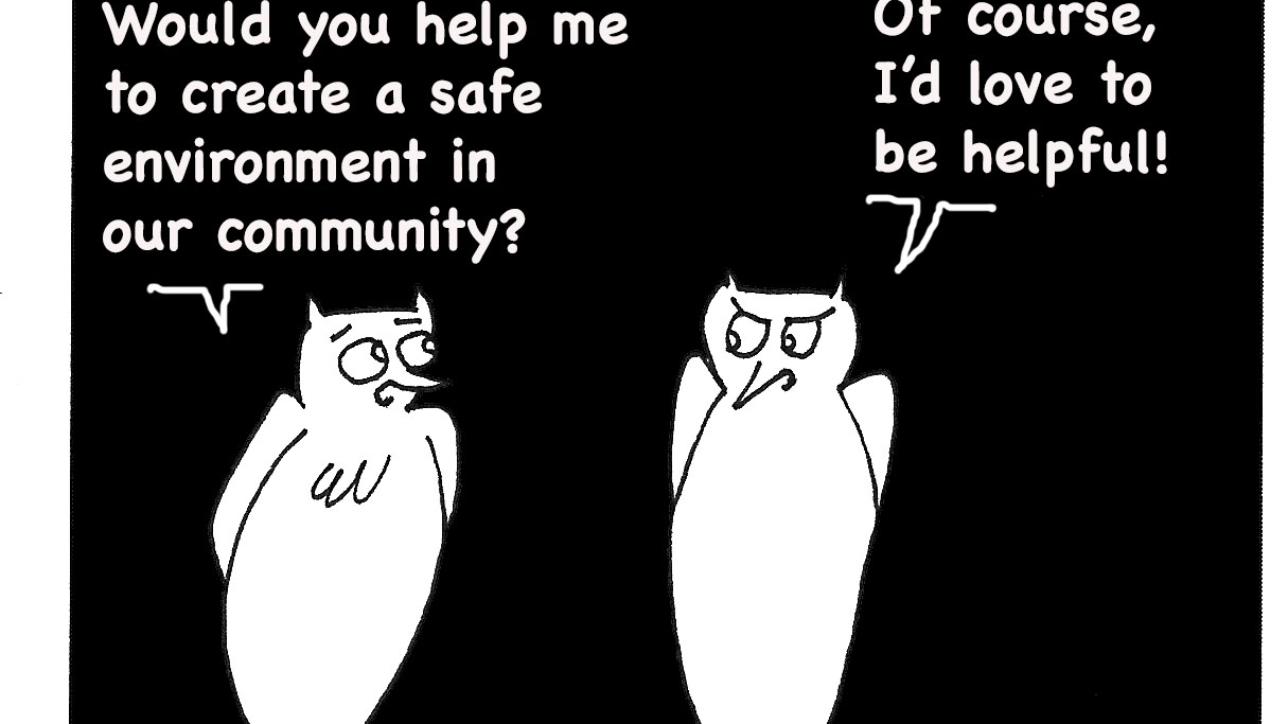Thanks to Google’s research on what makes a team successful, it has become well-known that among the five top factors, the most important one is psychological safety. Meaning that team members feel safe to take risks and be vulnerable in front of each other.
How much do we feel safe to be messy, vulnerable and even fail in our team, couple or organization? How much do we make it safe for others to fail, be messy, vulnerable or simply, different?
Those are interesting questions to ask ourselves if we are invested in creating trust, collaboration and meaningful connections in our life.
In An everyone Culture, Lisa Lahey and Bob Kegan describe the process of three successful organizations that believe developing people – and working on the self – is as essential as profitability. Deliberate Developmental Organizations (DDOs) are organizations that “have created a safe enough and demanding enough culture that everyone comes out of hiding” (in other words, hiding weaknesses). These organizations use on-going feedback as a key tool for everyone to grow to their next level and foster psychological safety. They make giving and receiving feedback easier, because they normalize it.
It’s a very rich and thought-provoking book. In the same vein as Ego-Free Leadership, it shows the path of what organizations could/should be doing in the XXI century.
Reflective questions: When is the last time you received feedback, gave feedback, or asked for feedback, and felt safe?









Carole,
Thanks for this great post and the note on the Lahey & Kegan book, which I will get (I have already read Ego-Free Leadership, which is outstanding!) I have really appreciated their past work, but had missed this one.
This post reminded me of an exchange I had with you many years ago after attending the 9 day personal mastery seminar. I was trying to figure out how to share with my colleagues the feedback I had received from them, so that they knew I had heard them, was working on things, etc. But I remained fearful that such openness would comprise my ability to be an effective leader … or more specifically, would make them think less of me (and this was after 9 days at the most powerful development experience I could ever imagine–this stuff is hard to shift!) . You simply said, “Jeff, they are aware of this feedback. They gave it to you.” I still marvel at how tangled up my thinking was about that – and it was a powerful turning point for me. I subsequently shared what I was working on quite broadly and it not only helped me, but more broadly, was a small part in helping the organization move to a higher degree of openness and vulnerability–which has been key to us becoming a stronger, learning organization (which is obviously still a work in progress … and always will be!)
Thank you for this post (and the many examples of coaching like this that have made a difference!)
Hi Jeff, Thank you for your thoughtful comment, and for sticking to the learning path no matter what! Agh, the fear that others will think less of us and in consequence, all the crazy unproductive behaviors… I get it!
It is mid-year review season at my organization so receiving and giving feedback are very top of mind right now. Feeling safe during this process is very difficult but I know that to grow, I have to overcome my fear of judgments. When receiving feedback, if I’m being given fair development points, I often rush to the fountain of failure and then start piling on myself of all my past failures, tuning out the very words I need to hear! When giving feedback, I fear that I am being overly critical and pull back, get nervous and mentally shift around, not giving the person what they need to hear. I am getting better at it but I also need more practice. And to be clear, I am only on my side of this, nowhere have I even mentioned the other side of the feedback process. I assume that my own fears are not creating a safe context for the other person as well when I’m not fully engaged or being direct.
LoL! Dear Bill, you are describing perfectly all the mental agitation around giving and receiving feedback! As you say, we all need more practice with the one thing that we spend our time avoiding… Thanks for keeping the conversation honest and alive!
Once again, you raise important and thought-provoking issues in the workplace. Much appreciated, Carole!